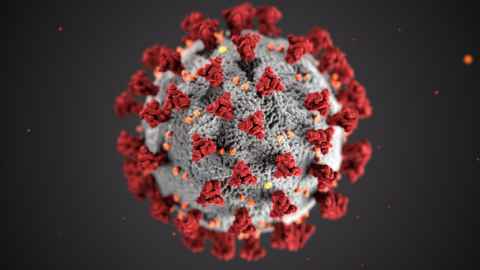Study for support people of those with Long COVID
The primary aim of the proposed study is to explore the lived experience of key support people of those who have Long COVID.

What's involved?
Long COVID (LC) is one of the lingering effects of the COVID-19 pandemic that profoundly affects many communities worldwide. Due to the condition’s wide-ranging impacts in many domains of wellbeing, individuals with LC need to be supported with quality care. Although healthcare professionals provide some of this support, a greater proportion of LC patients go to family and friends for support and will spend more time with these key support persons (KSPs). Although not currently investigated in LC work, the caregiving literature has demonstrated that this role shift can be challenging. KSPs often experience increased loneliness, guilt, depression, anxiety, and caregiver burnout. Currently, support services exist for the individual with LC rather than their KSP, likely due to gaps in understanding the needs of KSPs. To provide resources that help KSPs of those with LC, research is still needed to understand this group’s key challenges and needs. By understanding the experiences of KSPs, the proposed study hopes to inform resources that would help this group and, by extension, improve the wellbeing of those with LC.
The study will use a two-stage mixed method design, mixing quantitative and qualitative methods to capture the full range of experiences of support people. Stage 1 will involve an online anonymous cross-sectional survey via Qualtrics survey software. It is expected that about 50 people will be recruited. The survey will ask a mixture of quantitative and qualitative questions, collecting information about demographics, clinical characteristics of the person they are supporting with LC, their support experiences, perceptions of LC, and impacts of this experience in terms of caregiver strain, and physical, psychological, social and spiritual wellbeing. Finally, the survey will ask participants about what support they have received and support they would find useful. At the end of the survey, participants will be asked if they would like to enter the draw to receive one of five $100 Prezzy online cards, receive a summary of the study results and/or take part in a qualitative interview. If participants select any of these options, they will be directed to a separate form to enter their contact details. These details will be stored separately from survey responses to retain anonymity of the participants. The qualitative, semi-structured interview will be conducted over Zoom or phone. A sample of 6-10 people will be recruited for this second stage. Recruitment will aim to get a representative sample across demographic groups and relationships to LC patients. Recruitment will cease once data sufficiency has been reached. A reminder email and text will be sent out to the participant a week and the day before the interview. Participants will be asked about their experiences with being a KSP, support needs and preferences and the impacts of their support experience on their wellbeing.
Eligibility criteria
- Self-identify as a key support for someone with or who has had LC; including partners, parents, children, other close relatives, and close friends for a minimum of one month
- Are 18 years and older
- Can speak and write in English
Contact details
Primary Investigator
Dr Geraldine Tennant
Department of Psychological Medicine Co-investigators
Email: g.tennant@auckland.ac.nz
Co-investigators
Georgia van Vuuren
Department of Psychological Medicine
Phone: 027 4420993
Email: gvan983@aucklanduni.ac.nz
Associate Professor Rosie Dobson
School of Population Health
Email: r.dobson@auckland.ac.nz
Further information
-
Participant information sheet. Size: 148.0 kB.
Document Description: Find out more about this study.
Approved by the Auckland Health Research Ethics Committee on 18/05/2023.
Reference number AH25923.